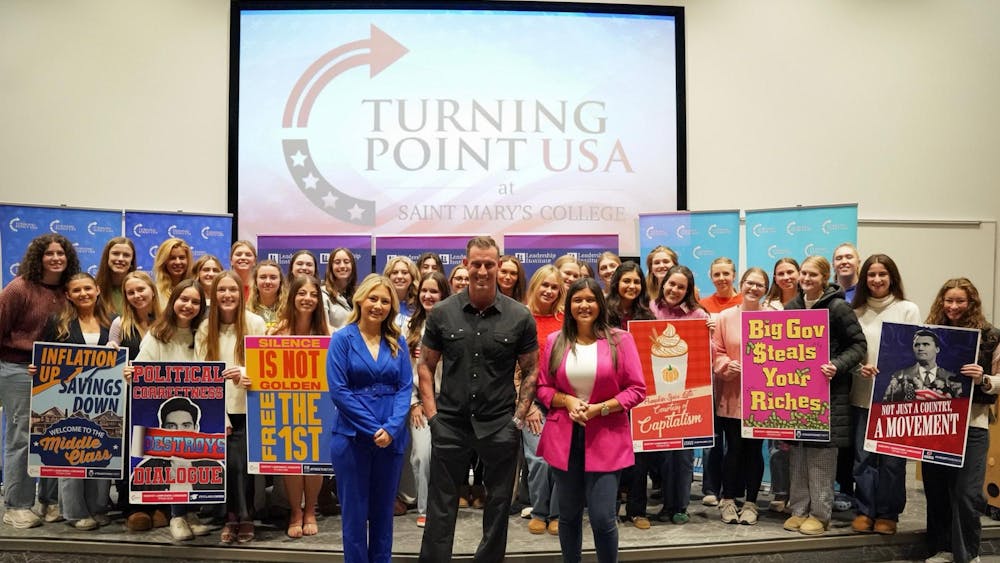If the rest of the world lived with my same American lifestyle, three additional Earths would be needed to supply this demand. Although investment in renewable energy is still needed, all current political debate fails to mention this fact: Our lifestyle of the highest consumption in the world is unsustainable — no matter what comprises the energy source. Naturally, any political solution would be hesitant to tout this fact, as the foundation of our economy seems to rely on sustained growth, especially on consumer spending to stir the economy. The consumer culture promises us happiness with more specialized and numerous products, redefines mere wants into consumer needs and fuels an insatiable desire for more accumulation of wealth and consumption. What would it look like to break away from this culture, the ever-heightening pursuit of the newest designer shoe or cheap trinket? Lucky and privileged to live in the United States and born into a middle-class family, I am grateful to have a warm home, devices to save time, ample convenience and the ability to buy consumer goods. I offer this gratitude for what I have been given, yet I harbor all of the benefits only for myself, spending for my every want, not necessarily for my needs. This privilege and gratitude imply a responsibility to not squander what I have been given, and my gratitude would only be mere words unless I showcase it through my own actions. How can this gratitude be actually realized when I am not willing to sacrifice my own sake of convenience to avoid the deadly consequences for those most vulnerable due to increased storm intensities and sea level rise from climate change? This gratitude must be shown to my children and grandchildren through leaving them those same resources for them to someday also be grateful. My gratitude, contrary to just being thankful for unlimited convenience in consumerism, transforms to a gratitude marked by restraint and simplicity, providing for only my own needs compared to feeding every want. If the sacrifice for my children’s future is to abstain from meat (as emissions from livestock production are a significant part of global emissions), how is this any different from sacrificing for my children by saving up a college fund or a mother abstaining from alcohol during pregnancy? While energy consumption is necessary to improve quality of life for education, public health and economic opportunity, further increases in energy consumption for developed countries do not necessarily increase overall well-being. Even with the world’s highest GDP at $20.5 trillion, the US was ranked 15th in the Quality of Life ranking for 2020. Would the value of life really diminish if people did not have 30 different ties or T-shirts to choose from, or if they had to utilize mass transportation services instead of driving to work? A change in consumption would lead to a change in consumer values. It would be inequitable to deny those who have less to force them to lower amounts of productions; just imagine America trying to convince China or India on limiting emissions by persuading them that only Americans are allowed to pursue a life of unlimited consumption. It is simple hypocrisy and would lead to the further destruction of the Earth. Instead, what would it mean if Americans voluntarily lowered their consumption demand, showcasing to other countries its own commitment to lowering emissions, understanding that greater convenience and consumer goods do not necessarily imply greater well-being? Though all tools to solve the climate crisis should be pursued, including renewables, energy efficiencies and economic regulations, each of us as individuals can play a role in our daily lives. As Americans lucky enough to live in this country, we are called to consider reductions in our carbon footprint through living simply in decisions about transportation, food choice, consumer products and luxuries not just as a sacrifice for our children or for our neighbor but because our gratitude beckons a kindness bestowed in return. This semester, I challenge each of us to implement at least one practice in 2020 for voluntary reductions, such as reducing food waste, limiting meat consumption or becoming vegetarian, carpooling or acting against the throwaway consumer culture.This action should not become the end goal but rather the first step on our journey, as we begin to train ourselves that this world and our lives in it are a gift, not an entitlement.
Patrick West
senior
Feb. 14









